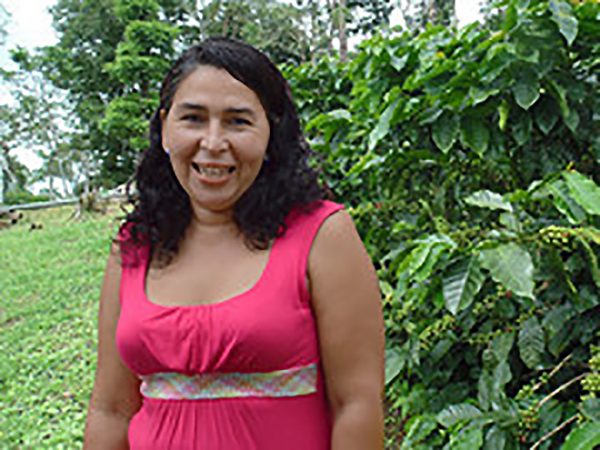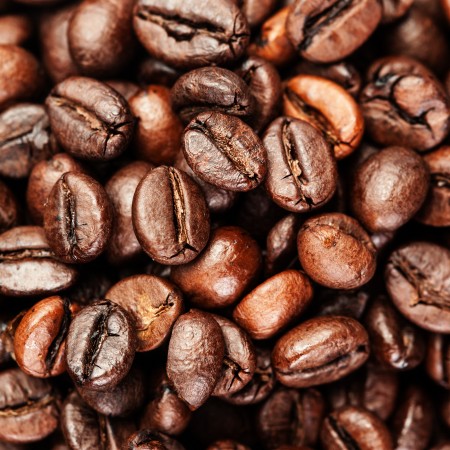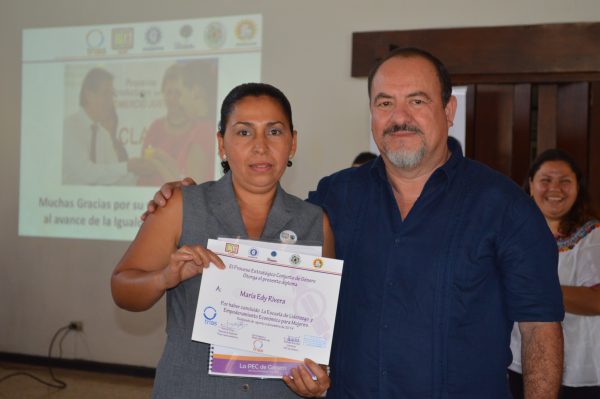As Britain celebrates Fairtrade Fortnight, we look at the impact the movement is having around the world.
Writing for Fairtrade International’s website, coffee farmer María Edy Rivera describes how working for a growers’ co-op supported by Fairtrade helped to empower her as a woman, and to fight for women’s rights around the world.
María is a board member of Coordinadora de El Salvador de Pequeños Productores Organizados de Comercio Justo (CESPPO).
I grew up on a coffee farm in El Salvador and have been surrounded by coffee bushes for almost my entire life. When I was a child, my mother belonged to the La Florida coffee co-operative and when she died in 2007, I took over her role and became an active member of the co-op.

I strongly believe that I am an empowered woman, a woman who has tried to set an example; I have fought to belong and represent the rights of rural women in public spaces where decision-making takes place. I am the first woman producer to sit on the board of Fairtrade’s national organisation in El Salvador, and I have achieved this because I discovered how to value myself as a woman.
It’s not been easy to make my way in a culture dominated by men. But it’s been worth the struggle, because I know that standing behind me there are many rural women who not only need to be represented, but also to know their rights and reach a deeper understanding of the importance of their role as women.
One of my greatest achievements in the past year has been bringing together a group of women with whom I share everything I learned at the leadership school run by five grass-roots farming, local development and women’s organisations including CLAC, the Fairtrade producer network for Latin America and the Caribbean.

It’s a massive challenge. When the school started in 2014, there were women who would not even raise their eyes when someone spoke to them. But we’re making steady progress – it isn’t easy, but it’s not impossible. The leadership school is hugely important because it highlights how women have been made invisible over time. It gives women the opportunity to find their voice, to move beyond mere objectification and to become agents of change in the global movement for fairer trade.
The school has taught me the importance of self-esteem, leadership, women’s and human rights, economic empowerment of women and the fair division of labour between the sexes. Among other things, I’ve learned how to advance women’s participation in decision making, the principles of co-operative values and legal frameworks, women’s entrepreneurship, popular education and group management techniques.
Related: Revolver launches new coffee products
Encouraged by the success of the first participants, the school programme has been extended and so far nearly 400 women have attended. Some of them have formed a group for savings and credits; another group are diversifying their farming activities such as producing and selling pickles. For me this is the biggest source of satisfaction – seeing us come together, working for the common good, and introducing new ways of working which mean we don’t have to travel so far and leave the kids alone at home.

On the UN International Day of Rural Women, it’s encouraging to be able to point to success stories which show that rural women are crucial for achieving the economic, environmental and social changes needed for sustainable development.
But many still have to struggle with limited access to credit, technical assistance and education. The majority still do not own land – the source of their livelihood – as the ownership of the land remains in the hands of men, even though in many countries women are the ones who work the land and those responsible for supporting the family.
My challenge, and the challenge of millions of women farmers and workers in developing countries, is how to advance, step by step, towards having an equal say in decision-making, running our businesses and our lives. Only then will we be able to bring about truly democratic and sustainable farmers’ organisations and co-ops, which in turn will enable us to realise the fundamental values of Fairtrade.

